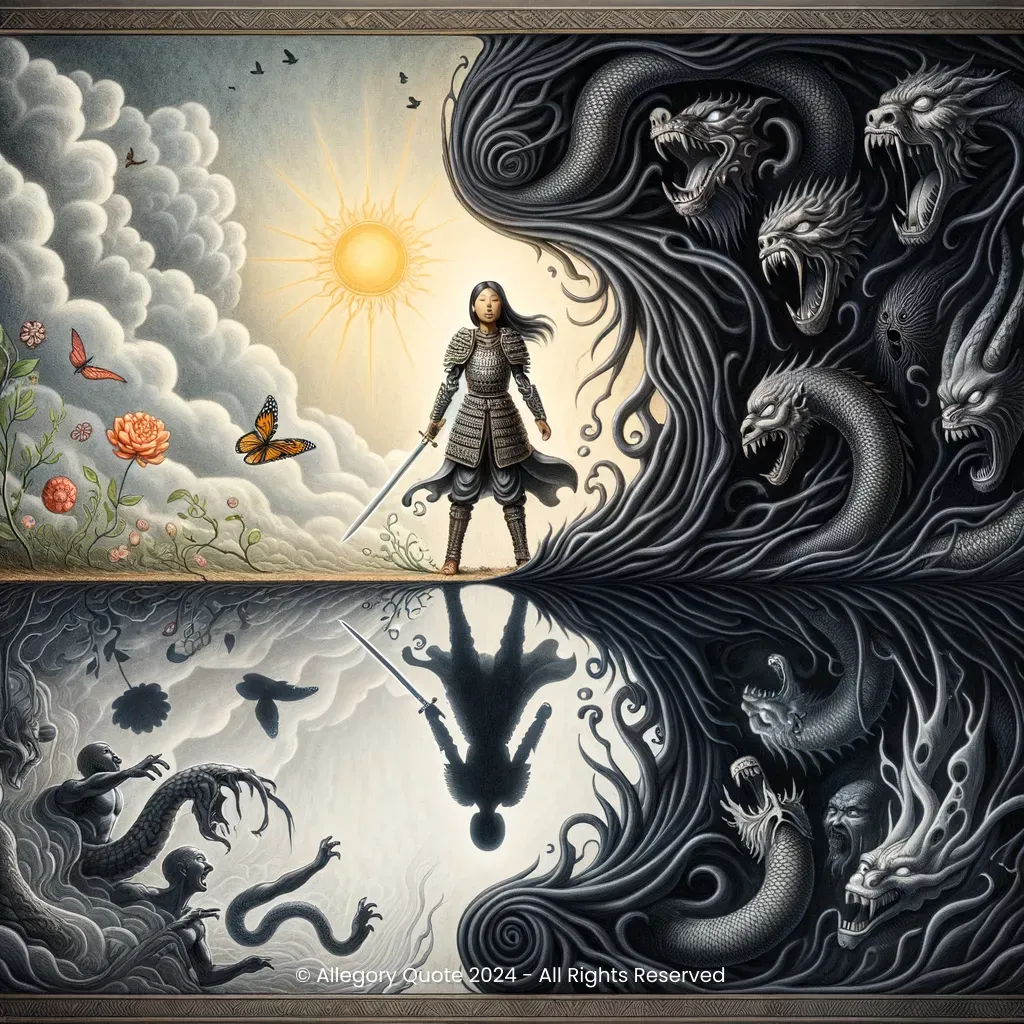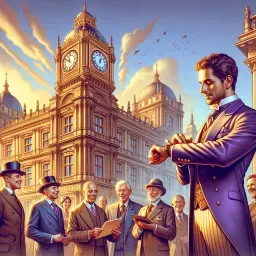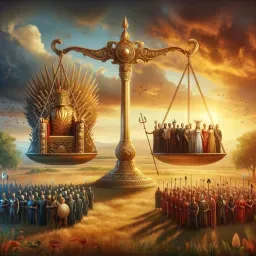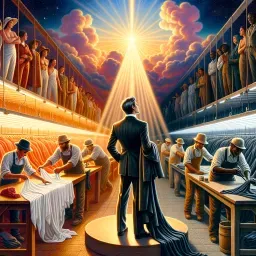”Battle not with monsters,
lest ye become a monster, and if you gaze into the abyss,
the abyss gazes also into you“

0
0
0
0
- Meaning
- The phrase warns against the danger of becoming the very thing one opposes. It suggests that in the process of fighting evil (monsters), one risks adopting those same qualities. The second part, "if you gaze into the abyss, the abyss gazes also into you," emphasizes that prolonged exposure to dark or morally corrupt challenges can corrupt one's own nature. Essentially, it serves as a caution to maintain one's principles and identity when confronting malevolent forces.
- Allegory
- The image embodies Nietzsche’s warning: the warrior represents someone fighting against evil. The ancient attire and the menacing monsters symbolize age-old battles with dark forces. The swirling abyss with reaching tendrils signifies the seductive and corruptive nature of prolonged exposure to darkness. The warrior's shifting reflection to something more monstrous highlights the risk of losing one's integrity. Symbols of balance like the sun and the juxtaposed flowers stress the importance of maintaining equilibrium and internal goodness amidst struggle. This representation is intended to evoke the complex, often perilous journey of facing and overcoming evil without losing oneself.
- Applicability
- This phrase can be applied in various situations involving personal integrity and ethical behavior. For example, in leadership, it reminds leaders to avoid corrupt tactics even when facing corrupt opponents. In personal life, one might consider it a warning not to let the negativity or toxic behavior of others transform one's own behavior and values. Staying true to oneself and not being swayed or corrupted by external negative influences is the essence of this teaching.
- Impact
- This phrase has had a lasting impact on both philosophical thought and popular culture. It is often cited in discussions about ethics, morality, and the nature of evil. The phrase has influenced literature, films, and other forms of art that explore the theme of wrestling with one's own darkness or the corruptive nature of power. It also contributes to the broader understanding of psychological and existential struggles.
- Historical Context
- Nietzsche wrote "Beyond Good and Evil" during the late 19th century, a time of significant social, political, and scientific changes in Europe. This period saw the rise of industrialism, increasing secularization, and anxieties regarding traditional values and the meaning of life in a rapidly changing world. Nietzsche's thoughts were revolutionary and controversial, challenging established moral and philosophical beliefs.
- Criticisms
- Some criticisms revolve around the deterministic tone of the phrase, suggesting it implies an inevitable corruption when confronting evil, which could discourage active resistance against malevolent forces. Others might argue that it underestimates human resilience and the capacity to confront and overcome evil without becoming corrupt.
- Variations
- There are interpretations of this phrase in different contexts. In Eastern philosophy, for instance, similar warnings exist about the nature of confronting evil without losing one's inner peace or ethical compass. The Bhagavad Gita, a sacred Hindu text, emphasizes maintaining righteousness without becoming entangled in the sin of the opponent. These interpretations underscore the universal appeal and relevance of the phrase.
-

Beauty is in the eye of the beholder.
-

I know that I know nothing.
-

We are our choices.
-

Do unto others as you would have them do unto you.
-

La ponctuality is the politeness of kings.
-

Yesterday is not ours to recover, but tomorrow is ours to win or lose.
-

Power tends to corrupt, and absolute power corrupts absolutely.
-

Your will is free, upright, and whole; henceforth, you act according to its discretion. Therefore, I crown and mitre you over yourself.
-

Der frühe Vogel fängt den Wurm.
-

What doesn't kill you makes you stronger.
-

I pity the man who wants a coat so cheap that the man or woman who produces the cloth will starve in the process.
No Comments